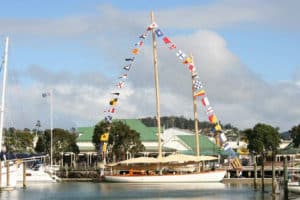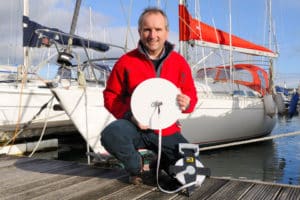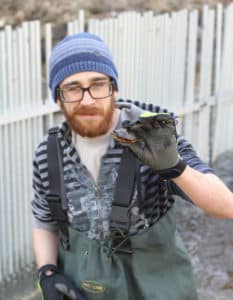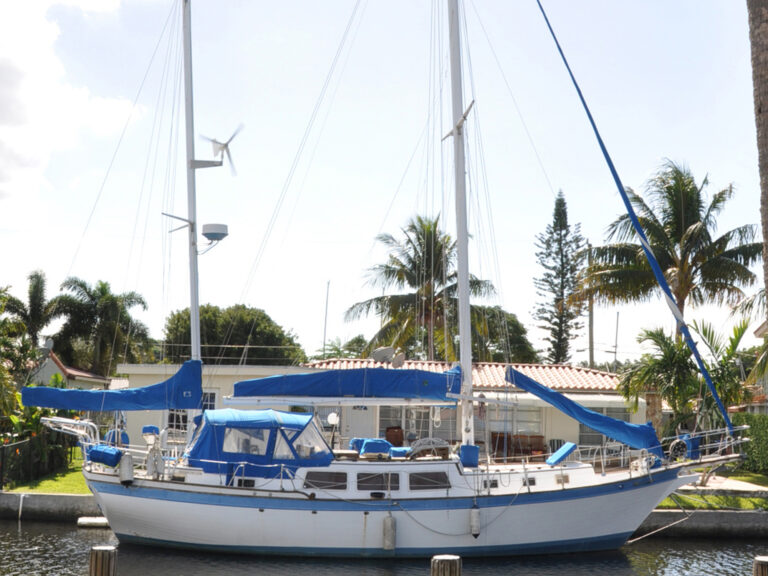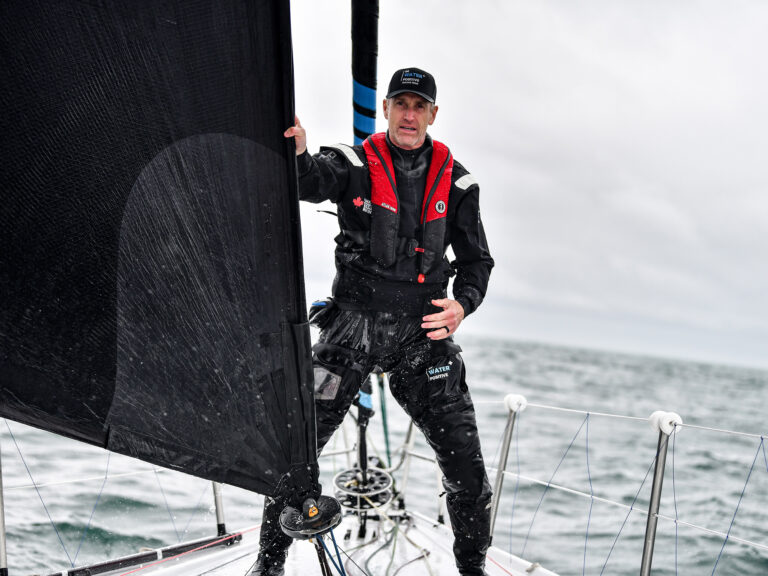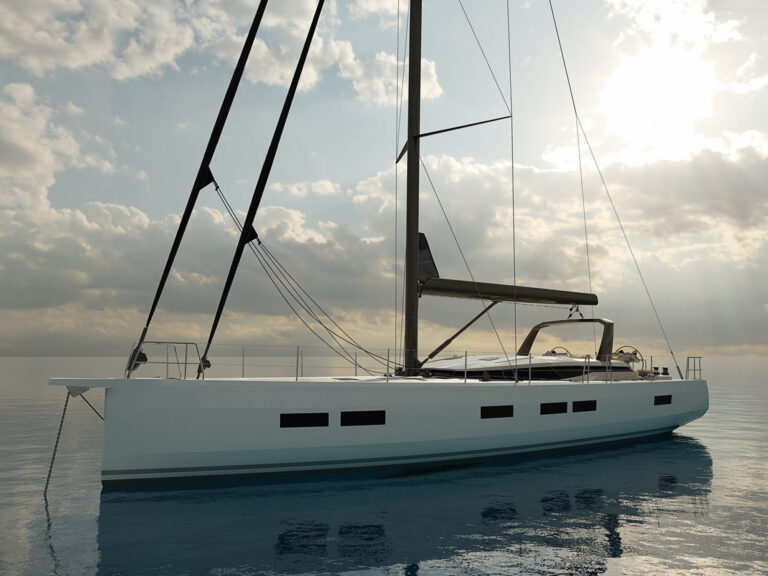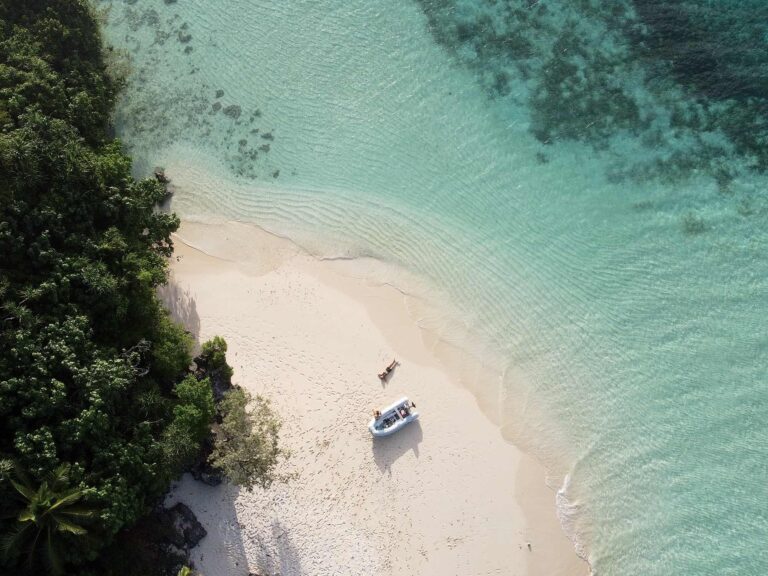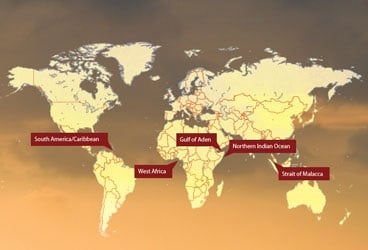
pirate map 368
The sound of a diesel engine was unexpected.
I was standing in the galley, waiting for the water for my coffee to boil. I’d been awake for only 10 minutes after a night of broken sleep while my 37-foot Heritage One-Ton sloop, The Hawke of Tuonela, ghosted west under cruising spinnaker before a light breeze. We were out of Bali, heading toward the Cocos, or Keeling, Islands, 100 miles south of Java. I’d had the ocean to myself ever since Bali disappeared astern three days earlier.
I hurried to the cockpit, where in the predawn light I saw that a boat about the size of Hawke was coming toward me. It was close, only a few hundred yards off the starboard bow, and on a course that would carry it very close: to within a boat length.
I seldom use the engine at sea and routinely put a spray cover over the ignition panel. It takes only a few seconds with a screwdriver to remove, but at that moment I didn’t have a screwdriver in my hand.
As it passed to starboard, I saw that it was a fishing boat flying a tattered Indonesian flag, with one man at the wheel and five more standing or sitting on the deck and facing toward me. The boat slowed, turned as it passed astern, and came alongside to port, matching my 3-knot speed. Only 5 yards of water separated us.
I’m on my fifth circumnavigation, and fishing boats have often come over to inspect my sailboats. Sometimes the men aboard have made gestures asking for cigarettes, which I don’t have. This fishing boat was too close, but I wasn’t especially concerned.
I looked at them. They looked at me. Then the man at the wheel yelled something, and I noticed that two of them were masked. One had a balaclava pulled down over his face; another wore a T-shirt with holes cut for his eyes and mouth. I thought to myself: These guys are coming for me.
Having to react quickly isn’t unusual on a boat. One minute everything is fine, and the next is chaos. I don’t recall my thought process at that instant, but I knew I had to do something.
Leaving the Monitor windvane to steer, I went below and took my handheld VHF-the only radio I carry-from its cradle beside the chart table, climbed back into the cockpit, where I held it up for the men on the fishing boat to see, then pretended to talk into it, believing that they wouldn’t know that its range is less than 10 miles.
The bluff seemed to work. After a long half minute or so, they powered off to the west.
As soon as they moved away, I removed the spray guard from the engine panel and started the engine. I furled the drooping spinnaker, lowered it, and dropped it through the forward hatch.
Then the fishing boat came back.
As it neared, I gave the Yanmar full throttle and turned south at a right angle. For a minute or so it followed, then turned away again. Full throttle on Hawke only produces 6 to 7 knots in the best of conditions. The fishing boat could certainly do more, but I’d caught them by surprise. I hand steered for 10 minutes, then relinked the Monitor control lines. I know that steering under power is hard on the Monitor, but I didn’t want to take the time to switch to the tillerpilot.
My next reaction must be seen in the context of my past.
In 1982, while sailing my 18-foot open boat, Chidiock Tichborne, up the Red Sea, I was imprisoned by Saudi Arabian authorities for a few weeks on suspicion of being a spy. I was completely helpless. It was a despair I didn’t want to experience ever again. I now made a cold decision to defend myself, not to avoid being robbed, which I wouldn’t like but, having lost everything I owned in the world twice before, could accept, but because I didn’t want to fall into the hands and questionable mercy of others.
I don’t own a gun and never have. I did, however, have a flare gun that I’d never fired. I dug it out, found seven flare cartridges packed with it, and loaded one into the chamber.
I also fashioned a spear made with my longest kitchen knife attached with hose clamps to a stout wooden dinghy oar. It would be five or six against one, but I thought that if they saw that the first to come aboard was likely to be hurt, none would be willing to be first.
I waited as Hawke powered south at full speed beneath a beautiful, sunny trade-wind sky, but there was no sign of pursuit. As a further precaution, I moved my passport, ship’s papers, wedding ring, and most of my cash into a hiding place in the overhead. I couldn’t find a place to hide the computers or the camera, and I left my wallet with a couple of hundred dollars in a drawer near the chart table, where it would be easily found if they did make it aboard.
As the wind came up, I set sail, and soon Hawke was making 6.8 knots. I didn’t recall seeing a radar dome on the other boat, and as the distance from the encounter increased, it was less likely that they could find me again or would try to. Nevertheless, I test-fired the flare gun. Having such a projectile hit you would at least be distracting. I removed the spent shell and loaded a fresh one.
That night, I didn’t turn on the tricolor light at Hawke’s masthead. And the pirates never returned.
I suspect that most pirates are like the ones I encountered, amateurs who happen upon a target of opportunity. I can offer no advice to others as to what they should do in a similar situation. But time and experience have only strengthened my resolve to resist an act of piracy if possible, even if it might result in greater retaliation, as it did with Peter Blake. (See “Good Man Gone”, Feb 2002).
During an interview, I was once asked to put what sailing means to me into one word. The word that came was “freedom.” I love being alone in the monastery of the sea, and that freedom is what I’d defend, not my possessions.
Carrying a firearm on a boat considerably complicates clearing in and out of countries. But simply displaying a gun would have been enough off Java. And I would have used it if I needed to.
Most of the places that I visited during my recent travels I’d not seen for 21 years. It seems the world has become more crowded, somewhat more convenient, and less charming in the last 20 years-and for sailors, I’d say that it may also be a bit more dangerous.
Webb Chiles (www.inthepresentsea.com) continues to revisit cruising destinations from his past and to relish the freedom that sailing aboard The Hawke of Tuonela provides.

